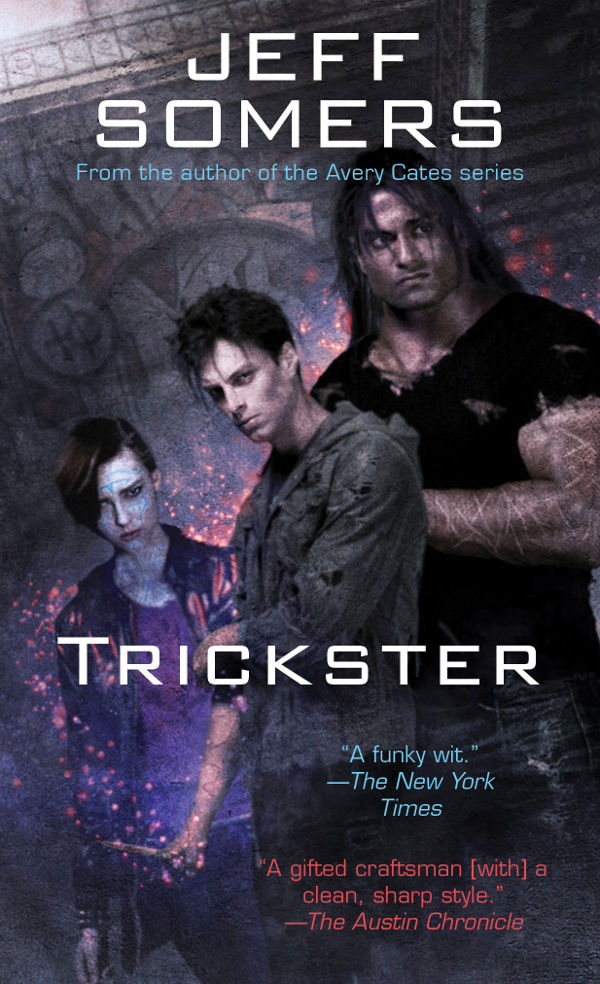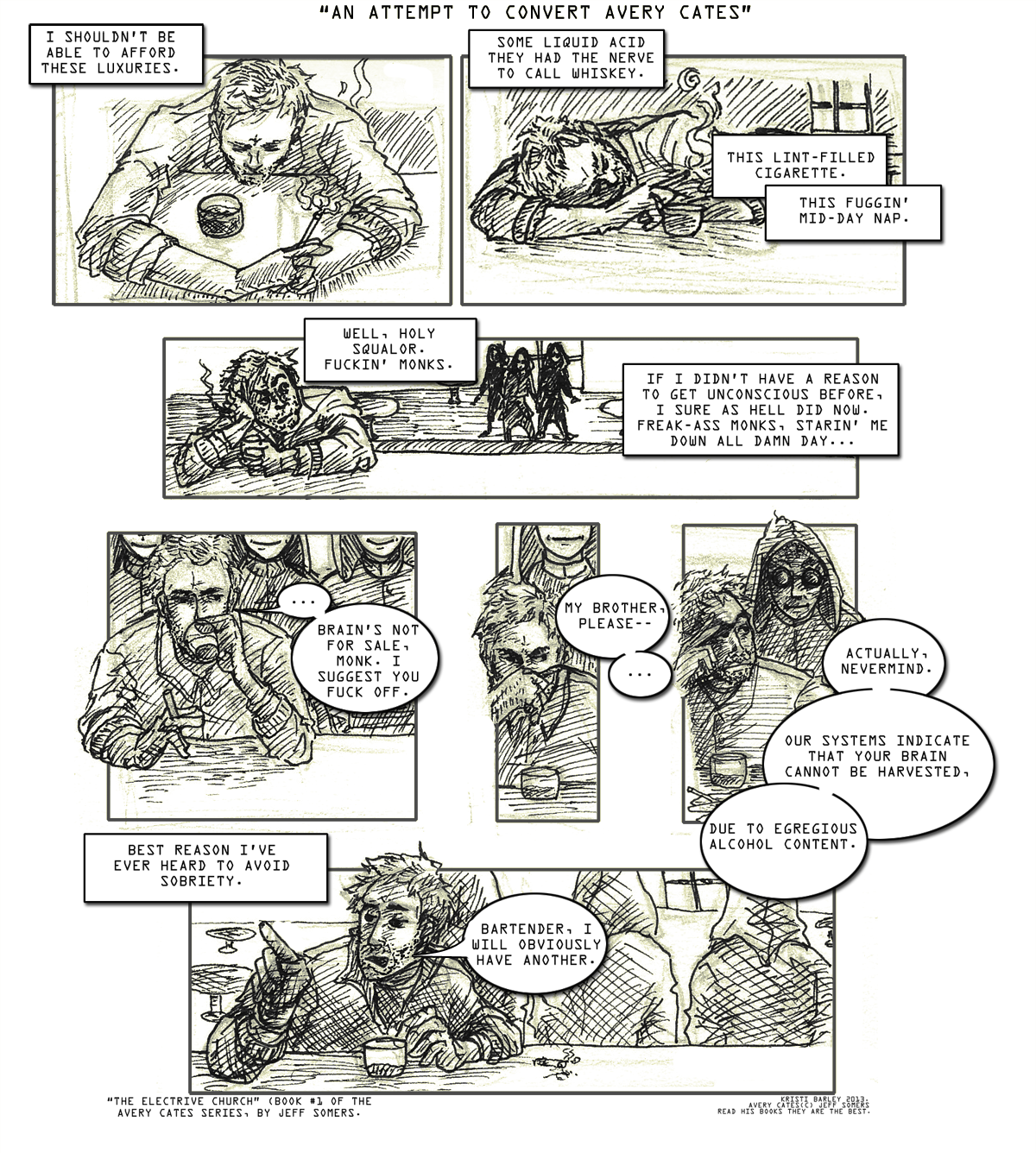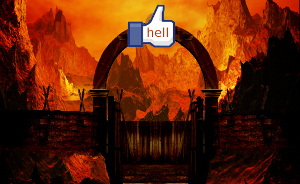 So, Trickster is out. Huzzah!
So, Trickster is out. Huzzah!
I started writing this book in 2010. It’s amazing sometimes how you start with a germ of an idea and then end up somewhere far away from that. Here’s the first ~850 words I wrote for this book. I trashed this (and several versions afterwards) before settling on the final approach in October 2010; much of this is still in the final version, though in a different form, and spread over many sections.
Trickster Draft Zero, August 2010
WHEN I was nine years old, my father picked me up after one of my Cub Scout meetings at the old church, which was strange because my father had left us the year before and I hadn’t seen him since. He drove an old boat of a car, cracked seats and broken radio. I remember climbing around the front and back seats, so much room it was like a little portable house on wheels. He let me; he just sat behind the wheel with a pint bottle of brandy between his legs, humming old songs as he drove.
We merged onto an empty highway, amber lights driving away the darkness but creating a weird Marscape of road, like we’d left the real world behind and were driving in the Ghost World. I didn’t know where we were going. Dad took regular sips from his bottle and answered all my questions with grunts and monosyllables. I had a lot of questions. I remember being really excited, after all this time Dad had come to take me on a trip, and after I got tired of not getting answers to my questions I settled into the back seat with my Webelos handbook and tried to figure out where we were going—amusement parks, zoos, the beach all seemed likely candidates. Eventually I remember falling asleep, liking the sensation of rocking back and forth in the big back seat, the smell of cigarettes and the sound of the wind.
Dad shook me awake and we were out in the middle of nowhere in the parking lot of a small square tavern with a huge red neon sign that said, simply, BEER. I followed him sleepily inside, where a handful of people who all seemed to be wearing flannel shirts and baseball caps were scattered around the tiny, gloomy room. Dad lifted me onto a stool and I remember slouching there, still asleep, looking owlishly around.
“Bourbon,” Dad said. It was the first time he’d spoken since he’d picked me up. “Neat. A coke for the kid.”
This was magic. The man behind the bar, who was fat and red in the face, his gray-white hair greasy and pasted flat against his round head, put a glass in front of me with a grin and used a gun on the end of a rubber hose to fill the glass with soda. Soda from a hose! It was magic, and I immediately schemed to have one installed at Mom’s house, because she always forgot to do the shopping and there was never anything to eat or drink.
Dad didn’t pay any attention to me, just sat there staring at the silent TV mounted up on the wall and sipped from his glass. Any time I finished a soda the man behind the bar waddled over, smiling, and refilled my glass. Free soda from a hose. After a while I eased off my stool and wandered over to where a trio of ancient electronic games sat blinking dully. Dad watched me for a moment, then shrugged and called the bartender over, fishing out a five dollar bill and holding it up.
“Give the kid some quarters,” he said.
I drank soda until I had to pee so badly my legs ached, and played fifteen games of bowling before finally giving in to the realities of the situation and heading for the bathroom. It was a scary bathroom. It had a door that didn’t close right and was dark, everything in it cold and slimy. To get there I had to pass by an old man of at least my Dad’s age sitting at the end of the bar. He wore a white suit with no tie or socks, just white pants and jacket that seemed too light for the weather and a white shirt. He was a mass of wrinkles. His hair was long and slightly curly, and his nose dominated his face, making him resemble a squirrel. I didn’t want to push past him to get to the bathroom, and hesitated for a second or two while my kidneys swam up behind my eyes, bulging them out. Finally I screwed up my courage and hustled past. He just grinned at me.
###
I got bored after a while. The games were old and creaky and not fun and after my seventh or eighth soda the impossible happened and I didn’t want any more of them. Dad just sat and drank and stared. I was afraid to make much noise or bother him, remembering how terrifying he was when angered, and tried to find other ways to amuse myself. I looked around and found the man in the white suit staring at me. He smiled and waved, and I looked away. When I stole a glance back at him, he waved again, and I realized with a start that his fingertips were on fire. As he moved them back and forth through the air they flickered and smoked.
The flames were blue-green. As I stared the man winked at me.
I looked around, but no one else seemed to have noticed. Everyone else might as well have been asleep. Not me. My heart was pounding
 Someday my agent is going to ask me how it is I have time to compose, record, and post these terrible musical pieces when I have contractual fiction obligations, and when that day comes I am fleeing to Mexico with my entourage. Which is what I call my cats.
Someday my agent is going to ask me how it is I have time to compose, record, and post these terrible musical pieces when I have contractual fiction obligations, and when that day comes I am fleeing to Mexico with my entourage. Which is what I call my cats.




